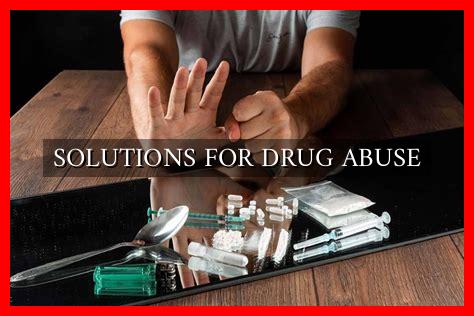-
Table of Contents
Solutions for Drug Abuse
Drug abuse is a pervasive issue that affects individuals, families, and communities worldwide. It can lead to devastating consequences, including health problems, social isolation, and legal troubles. However, there are various solutions that can help address this complex problem. In this article, we will explore some effective strategies for combating drug abuse.
Prevention Programs
Prevention is key in addressing drug abuse. By implementing education and awareness programs, individuals can be informed about the dangers of drug use and empowered to make healthy choices.
. Schools, community centers, and healthcare facilities can offer prevention programs that teach young people about the risks associated with drug abuse.
- Substance Abuse and Mental Health Services Administration (SAMHSA) provides resources for prevention programs.
- Drug Abuse Resistance Education (D.A.R.E) is a popular prevention program that educates students about the dangers of drug use.
Treatment and Rehabilitation
For individuals struggling with drug abuse, treatment and rehabilitation programs are essential. These programs provide support, counseling, and medical care to help individuals overcome their addiction. Inpatient and outpatient treatment options are available, depending on the severity of the addiction.
- National Institute on Drug Abuse (NIDA) offers evidence-based approaches to drug addiction treatment.
- 12-step programs, such as Narcotics Anonymous, provide a supportive community for individuals in recovery.
Support Services
Support services play a crucial role in helping individuals maintain their sobriety after completing treatment. Peer support groups, counseling services, and sober living homes can provide ongoing support and encouragement for individuals in recovery. These services help individuals build a strong support network and develop coping strategies to prevent relapse.
- SAMHSA National Helpline offers free, confidential support for individuals struggling with substance abuse.
- Al-Anon and Alateen provide support for family members and friends of individuals struggling with addiction.
Law Enforcement and Policy Changes
Law enforcement plays a critical role in combating drug abuse by enforcing drug laws and cracking down on drug trafficking. Additionally, policy changes, such as implementing stricter regulations on prescription medications and increasing access to treatment programs, can help reduce drug abuse rates. By addressing the root causes of drug abuse, such as poverty and mental health issues, policymakers can create a more supportive environment for individuals struggling with addiction.
- Drug Enforcement Administration (DEA) works to enforce drug laws and combat drug trafficking.
- Drug Policy Alliance provides statistics on the impact of drug policies on drug abuse rates.
Conclusion
Drug abuse is a complex issue that requires a multifaceted approach to address effectively. By implementing prevention programs, providing treatment and rehabilitation services, offering support services, and enacting policy changes, we can work towards reducing drug abuse rates and supporting individuals in recovery. It is essential for communities, healthcare providers, policymakers, and law enforcement agencies to collaborate and implement evidence-based strategies to combat drug abuse and promote overall well-being.





